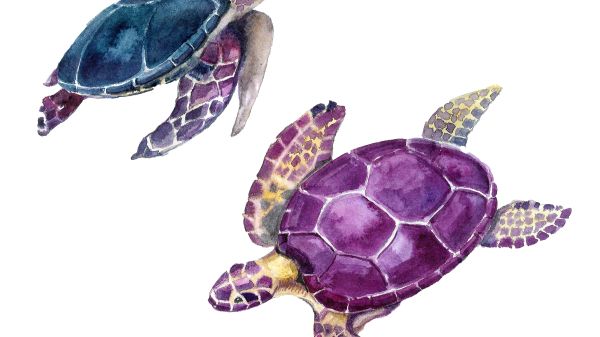Formal Educators: Anti-Racism and Representation

Use ideas from these resources in your classroom to ensure representation and an anti-racism attitude in your curriculum. Please add comments, questions, and additional resources to the comments below the post. You can also share feedback with us by writing eepro@naaee.org. Like all of the resource lists in our Justice, Equity, Diversity, and Inclusion pages, this list is fluid and will be updated often, so please check back for updates.
Beginner's Guide
Instructor Bias Assessment: Included in our Equitable and Inclusive EE Module, this self-assessment will guide educators in checking assumptions, mitigating biases, and ensuring all learners are reached.
Talking About Race (website): From the National Museum of African American History and Culture, this portal includes resources for understanding the historical foundations of race in American society and for how to engage our students, children, and other adults in respectful, productive conversations about race.
"Teaching About Race, Racism, and Police Violence" (resource compilation): From Teaching Tolerance, this list includes professional development, classroom resources, and articles and stories to help educators engage students in discussions about implicit bias and systemic racism.
A Guide To Gender Identity Terms" (article): A recently released guide that clarifies the language and provides helpful answers to your questions.
"An African-Centered Approach to Land Education" (article): Open-access article by Salvotore Engel-DiMauro and Karanja Keita Carroll on integrating Africana Studies into Environmental Education. Particularly geared towards those in Higher Ed.
Anti-Racist Educator Self-Examination Questionnaire and Rubric (document): There is no neutral classroom. Reflect on your pedagogical assumptions and utilize this working document to create an anti-racist classroom.
Black Nature: Four Centuries of African American Nature Poetry (book): Bring new voices to classroom poetry using this inaugural anthology edited by poet Camille T. Dungy.
"Embracing More Diverse Representations of Children in Nature Inspired Books" (article): International Journal of Early Childhood Environmental Education article providing a list of 19 children’s books featuring children of color as protagonists, as well as multiple resources for further reading.
Inclusion by Design: Survey Your Syllabus and Course Design (document): Survey tool designed by faculty members of James Madison University and University of the District of Columbia for educators to self-evaluate the inclusivity of their syllabus and course design.
Native Knowledge 360° (website): Created by the Smithsonian National Museum of the American Indian, this website offers new perspectives on Native American history and cultures. through curriculum resources and professional development.
Public Lands in the United States (curriculum): Created by The Wilderness Society and The Avarna Group, this curriculum supports educators and outdoor program leaders in teaching that 1) public lands are for all people, 2) public lands relate to social and political movements, 3) all people can benefit from public lands and can advocate to protect them, and 4) there is a need for greater diversity and inclusion.
"Silence Is Never Neutral; Neither Is Science" (article): 500 Women Scientists Leadership's June 2020 contribution to Scientific American addresses racism and discrimination within scientific institutions and the need for Black, Latino/a and Indigenous scholars when tackling current and future crises. The conclusion includes eight recommendations for scientists, academic institutions, and scientific organizations.
"Social Justice in Schools" (webinar): “Social justice belongs in our schools. Each of our students deserves access to transformative, equitable education. Teachers are experts in education. Vulnerability is brave,” shares Sydney Chaffee, 2017 Teacher of the Year, in this webinar on inspiring students and teachers to be agents of change.
Teaching for Black Lives (book): Every educator will find this resource book edited by Dyan Watson, Jesse Hagopian, and Wayne Au to be instrumental in creating a culturally responsive classroom.
"Teaching in the Wake of Violence" (resource compilation): Educators are provided with discussion questions and reflection activities for post-crisis conversations with students in this Facing History guide, as well as advice on media consumption and fake news.
"Ten Steps to Protect BIPOC Scholars in the Field" (article): Written by Black student geoscientists, this article is recommended reading for higher education institutions, professors, and students to learn how to proactively create an inclusive outdoor experience.
The Bone and Sinew of the Land: America’s Forgotten Black Pioneers and the Struggle for Equality (book): Anna-Lisa Cox rewrites pioneering history to share the stories of pre-Civil War black farmers who escaped slavery and established settlements in the Northwest. A useful resource for educators looking to diversify their pre-Civil War curriculum.
"The Time Tax Put on Scientists of Color" (article): Virginia Gewin reports for Nature on the extra, uncompensated work that Black and minority-ethnic academics are often expected to take on.
Trauma-Informed Toolkit: From Oregon State University, this Trauma-Informed Toolkit by Yasmeen Hossain, Ph.D. supports and complements educators’ knowledge and skillset in implementing trauma-informed approaches in educational settings.
Your Kids Aren't Too Young to Talk About Race (resource compilation): Blog post by Katrina Michie offering a list of resources for parents, caregivers, and teachers of young children. Resources include children's books, toys, podcasts, and articles.
Zinn Education Project (website): Based on Howard Zinn’s approach as utilized in A People’s History of the United States, the Zinn Education Project provides free curricula on relevant topics such as climate justice, environment, and Native American studies that emphasizes the role that working people, women, people of color, and organized social movements have played in shaping history.